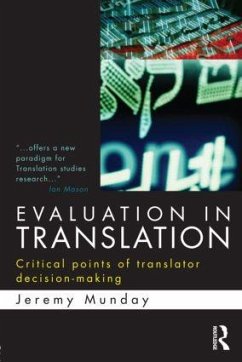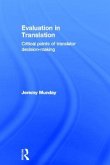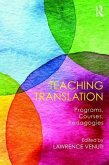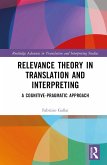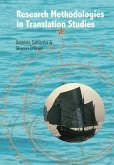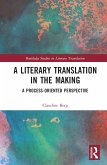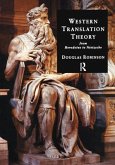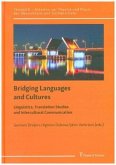In this book, Jeremy Munday presents advances towards a general theory of evaluation in translator decision-making that will be of high importance to translator and interpreter training and to descriptive translation analysis. By 'evaluation' the author refers to how a translator's subjective stance manifests itself linguistically in a text.
In a world where translation and interpreting function as a prism through which opposing personal and political views enter a target culture, it is crucial to investigate how such views are processed and sometimes subjectively altered by the translator. To this end, the book focuses on the translation process (rather than the product) and strives to identify more precisely those points where the translator is most likely to express judgment or evaluation.
The translations studied cover a range of languages (Arabic, Chinese, Dutch, French, German, Indonesian, Italian, Japanese, Russian, Spanish and American Sign Language) accompanied by English glosses to facilitate comprehension by readers. This is key reading for researchers and postgraduates studying translation theory within Translation and Interpreting Studies.
Hinweis: Dieser Artikel kann nur an eine deutsche Lieferadresse ausgeliefert werden.
In a world where translation and interpreting function as a prism through which opposing personal and political views enter a target culture, it is crucial to investigate how such views are processed and sometimes subjectively altered by the translator. To this end, the book focuses on the translation process (rather than the product) and strives to identify more precisely those points where the translator is most likely to express judgment or evaluation.
The translations studied cover a range of languages (Arabic, Chinese, Dutch, French, German, Indonesian, Italian, Japanese, Russian, Spanish and American Sign Language) accompanied by English glosses to facilitate comprehension by readers. This is key reading for researchers and postgraduates studying translation theory within Translation and Interpreting Studies.
Hinweis: Dieser Artikel kann nur an eine deutsche Lieferadresse ausgeliefert werden.
'Jeremy Munday has over many years made significant contributions to translation theory, methodology and training. His "Evaluation in Translation" addresses yet another key concept of translational theory and practice, illuminating its pervasiveness across registers and genres. I am sure that the book will offer insights both to those interested in textuality - the product - and to those coming from the perspective of the practising translator - who ultimately are the ones creating textuality through their decision making.'
Erich Steiner, Universität des Saarlandes, Germany
'This book successfully bridges the gap between the cultural, social and political concerns of recent Translation Studies and the actual interventions made by translators at critical points in texts. A highly impressive piece of scholarship, offering a new paradigm for Translation Studies research.'
Ian Mason, Emeritus Professor, Heriot-Watt University, UK
Erich Steiner, Universität des Saarlandes, Germany
'This book successfully bridges the gap between the cultural, social and political concerns of recent Translation Studies and the actual interventions made by translators at critical points in texts. A highly impressive piece of scholarship, offering a new paradigm for Translation Studies research.'
Ian Mason, Emeritus Professor, Heriot-Watt University, UK
'Jeremy Munday has over many years made significant contributions to translation theory, methodology and training. His "Evaluation in Translation" addresses yet another key concept of translational theory and practice, illuminating its pervasiveness across registers and genres. I am sure that the book will offer insights both to those interested in textuality - the product - and to those coming from the perspective of the practising translator - who ultimately are the ones creating textuality through their decision making.'
Erich Steiner, Universität des Saarlandes, Germany
'This book successfully bridges the gap between the cultural, social and political concerns of recent Translation Studies and the actual interventions made by translators at critical points in texts. A highly impressive piece of scholarship, offering a new paradigm for Translation Studies research.'
Ian Mason, Emeritus Professor, Heriot-Watt University, UK
Erich Steiner, Universität des Saarlandes, Germany
'This book successfully bridges the gap between the cultural, social and political concerns of recent Translation Studies and the actual interventions made by translators at critical points in texts. A highly impressive piece of scholarship, offering a new paradigm for Translation Studies research.'
Ian Mason, Emeritus Professor, Heriot-Watt University, UK

